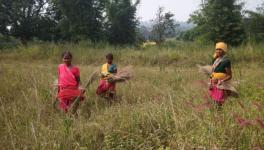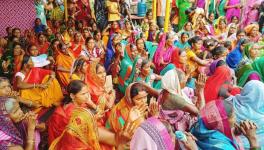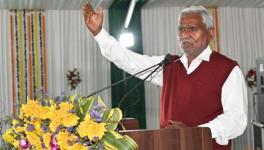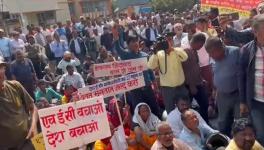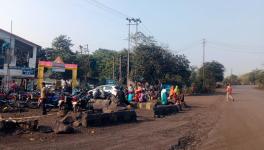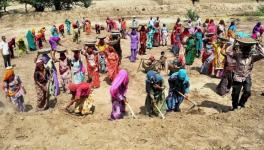In Jharkhand, the Situation is Alarmingly Worsening: Jharkhand Janadhikar Mahasabha
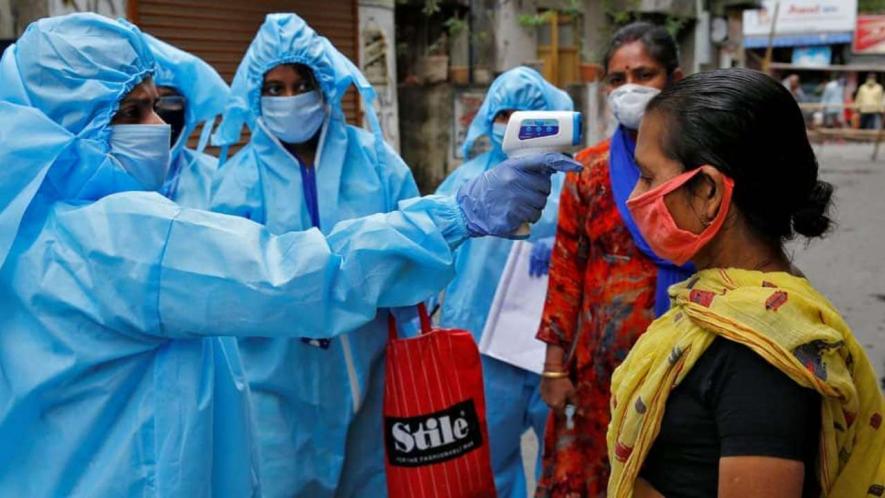
Chief Minister Hemant Soren recently announced a ‘Swasthya Suraksha Saptah’ week-long lockdown from April 22, 2021 to control the chain of Coronavirus cases in Jharkhand. However, the Jharkhand Janadhikar Mahasabha (JJM) suggested that the administration should instead focus on improving its health sector and government schemes.
Arrangements should be made on war footing by the Jharkhand government to improve its health infrastructure through increased vaccination drives and budget allocation to fight the second wave of the Covid-19 pandemic, said the coalition of progressive state organisations.
Regarding the doubling rate of Covid-19 cases every five days, members criticised central and state governments for failing to employ specific efforts to allay the worsening situation over the past year.
As per data provided by the CoWIN website, Jharkhand has administered 24,87,873 first doses since January 16 out of a total of 28,64,727 vaccination doses. The state programme seems to focus on 40-60 years and above 60 years age groups that are most vulnerable to the virus.
Yet, this number struggles to catch up with the state’s estimated 4.09 crore population. Further, the state recorded lowest vaccinations when compared with neighbouring states like West Bengal (over 67 lakh Dose 1 vaccines) and Uttar Pradesh (over 75 lakh Dose 1 vaccines).

Districts such as Ranchi, East Singhbhum and Dhanbad boast the highest Dose 1 vaccination coverage of over 180 thousand vaccines. However, other areas like Sahebganj are yet to reach even the 40 thousand Dose 1 vaccine mark. As for Dose 2 vaccines, Ranchi with its record coverage has only administered 47,031 vaccines as of April 20.
“The vaccination rate should be increased to at least three times without delay. Vaccine production should be increased and the need for vaccination should be widely disseminated,” said the JJM.
It stated that the government should organise camps for testing, vaccination and health services in urban slums along with 2,032 vaccination conducting sites in the state. Accordingly, RT PCR tests should be carried out, oxygen production should be increased and people should be trained on how to put patients on oxygen support.
In terms of public access to other health infrastructure such as hospital beds or ventilators, only 10,784 beds and 270 ventilators are available in the public sector, as per a 2020 report by the CDDEP. To increase such numbers, along with the number of medicines and required medical staff in every hospital, the JJM demanded an immediate increase in the budget for Jharkhand’s public health system.
According to PRS India, Jharkhand allocated Rs. 4,445 crore to the health and family sector in the 2021-22 Budget Estimates; a two percent change from the Rs. 4,338 crore allocation in the 2020-2021 revised estimates. Overall, Jharkhand has allocated 5.2 percent of total expenditure on health, which is marginally less than the average allocation of 5.5 percent for health by states.
This will also ensure the running of outpatient clinic services for non-covid cases in government and private health centres and hospitals at every level. Additionally, Jharkhand should restart the quarantine centres at panchayat and block levels, they said.Moreover, the JJM appealed to the central government to transfer money from the PM Cares Fund to strengthen the public health system and publicise related information. Focusing on nutrition, members called for ramping up of the public distribution system (PDS) in rural areas and urban slums to reach food grains to all left-out families.
“The state government should activate all existing ‘dal-bhat kendras’ and increase numbers as per requirement. Local administration and ration dealers should be instructed that if any person asks for grain (with or without ration card), s/he should be immediately given free grains,” said the JJM.
According to the National Family Health Survey (NFHS-4) 47.8 percent children under five years are underweight and 11.4 percent children are severely wasted. For such reasons, organisations asked that anganwadi centres be kept open to offer cooked food and dry ration to children, pregnant women and the elderly. Similarly, free food grains and income support should be given to daily laborers, rickshaw pullers, domestic workers, rag-pickers and sanitation workers to overcome the economic burden of the coronavirus pandemic.
Apart from healthcare, members demanded sufficient budget allocation for Mukhyamantri Shahri Shramik Rozgar Yojana, MGNREGA and other schemes to continue economic activities, especially in villages. Further, transport and sale of agricultural input commodities, produce, vegetables, should continue without restrictions. Incidentally, the Jharkhand government has allowed essential services and agriculture, industries, construction and mining sectors to continue during the week-long lockdown.
Courtesy: Sabrang India
Get the latest reports & analysis with people's perspective on Protests, movements & deep analytical videos, discussions of the current affairs in your Telegram app. Subscribe to NewsClick's Telegram channel & get Real-Time updates on stories, as they get published on our website.









